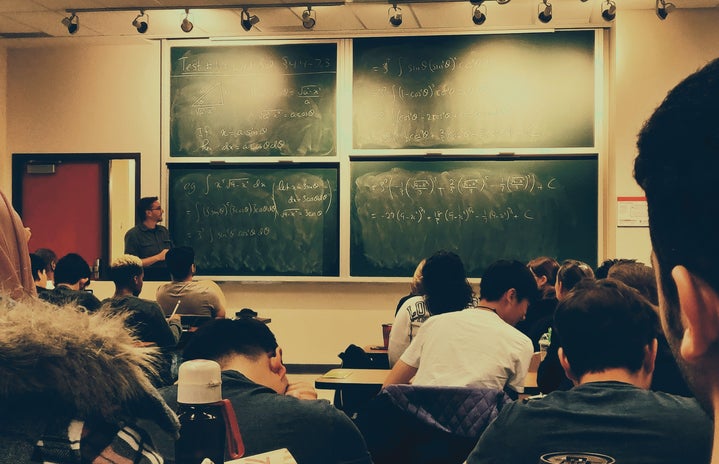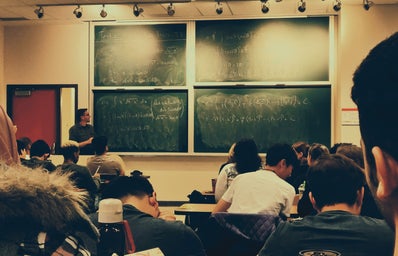October 15th is known as Teachers’ Day in Brazil. To celebrate these very important professionals, how about remembering five outstanding educators throughout history?
1. Paulo Freire
“There’s no such thing as neutral education. Education either functions as an instrument to bring about conformity or freedom.”
Paulo Freire was born in a poor family in Recife, Brazil and struggled with a lot of social issues, such as hunger and lack of education. Therefore, his personal experience growing up revealed to him the relationship between social class and scholarship. He graduated from law school in Recife and studied philosophy and Portuguese at the same time.
The Brazilian taught Portuguese to high school students and in 1960 developed Paulo Freire’s method of literacy, recognized worldwide. After successful experiences in applying the method, Freire became a prominent figure of the Brazilian education scene and was invited to replicate the experience nationally. However, during the Brazilian military dictatorship, the plan was discontinued and Paulo Freire was exiled from the country due to his political statements. Paulo Freire is acknowledged as the Patron of Brazilian Education and his teachings are still discussed and applied to this day. His work “Pedagogy of the Oppressed” is taken as a reference and guides professionals to teach towards freedom and popular emancipation and he is the third most quoted theorist in the humanities.
2. Bell Hooks
“Whether we’re talking about race or gender or class, popular culture is where the pedagogy is, it’s where the learning is.”
Bell Hooks was an American teacher, writer and activist engaged with anti-racist and feminist movement. Hooks studied in segregated, black-only schools in Kentucky in the 1950s. In her book “Teaching Critical Thinking: Practical Wisdom,” she explains that, despite the challenges, her education encouraged her commitment to fight for social justice and racial equality. In 1973, she graduated from Stanford University and continued her education with masters and doctorate degrees in other US universities.
She began her career in 1976 teaching ethnic studies at the University of Southern California and went on to teach at other US institutions. Her literary writings have also brought worldwide recognition, and in many of her works she tells of her inspiration in Paulo Freire’s theories, expressed especially in the book “Teaching to Transgress: Education as the Practice of Freedom”.
3. Angela Davis
“You have to act as if it were possible to radically transform the world. And you have to do it all the time.”
Also known for her anti-racist and feminist activism, Angela Davis is a prominent teacher and intellectual on the current political scenario. Her mother was always politically engaged, so she grew up surrounded by thinkers and activists in a southern US state that suffered from racial segregation policies.
Davis was an activist for the Communist Party and the Black Panthers, which led to a misunderstanding that put her on FBI’s list of ten most wanted criminals, charged with conspiracy and murder. After an eighteen-month trial and an intense campaign for her release, the philosopher became a professor of philosophy and history at prestigious universities in the United States, as well as a celebrated writer.
After teaching for 17 years in the Department of History of Consciousness at the University of California, Santa Cruz, Davis was awarded the title of professor emeritus. In 2008 she retired, but continued her lectures and courses at universities around the world, debating gender and race equality, the conditions of the prisoners in the jails of the USA, and the liberation of the LGBTQI+ community.
4. Stephen Hawking
“My goal is simple. It is a complete understanding of the universe, why it is as it is and why it exists at all.”
Stephen Hawking is known worldwide for his groundbreaking work in physics and cosmology. At the age of 21, Hawking was diagnosed with early stages of ALS (Amyotrophic Lateral Sclerosis) and realizing that he might not live long, the physicist dedicated himself intensely to his studies and research. In 1962, he graduated with honors in the natural sciences and attended Trinity Hall at Cambridge University for a PhD in cosmology.
Almost 20 years later, Hawking, was appointed to one of the most recognized posts in teaching: the Lucasian Professor of Mathematics at Cambridge University. He is also the author of several works such as “A Brief History of Time” and “The Theory of Everything: The Origin”, which deal with some theories that are considered fundamental in modern physics.
5. Marie Curie
“We must have perseverance and above all confidence in ourselves. We must believe that we are gifted for something and that this thing must be attained.”
Scientist and professor Marie Curie is well known for her achievements in chemistry and physics. Marie faced several challenges to enter higher education, since the university in her hometown, Warsaw, did not accept women. This is how she got her first experience with teaching, as she decided to give private classes in order to save money and go to France. In 1891 she went to Paris, entered the Sorbonne University and graduated in Physics and later Mathematics.
After graduating, the scientist became the first female professor at the Sorbonne University and also succeeded her husband as head of the physics laboratory at the French institution. Her discoveries and scientific contributions about radioactivity earned her two Nobel Prizes, one in Physics and one in Chemistry, making her the first woman to receive a Nobel Prize and the only one to win it twice. Marie also taught courses on the element radium and became a reference for women around the world for her discoveries and for opening space for other women in science.
That being said, teachers are essential to society’s development and have a part in the formation of each and every professional. Keep in mind to celebrate those who fight for education and for building a better country through knowledge not only on this October 15th, but whenever possible.
—————————————————
The article above was edited by Ana Beatriz Aith. Liked this type of content? Check out Her Campus Casper Libero for more!


